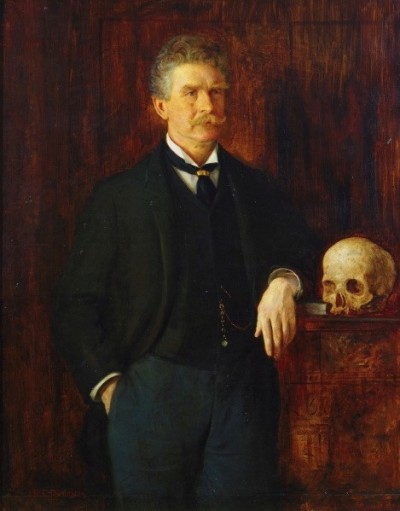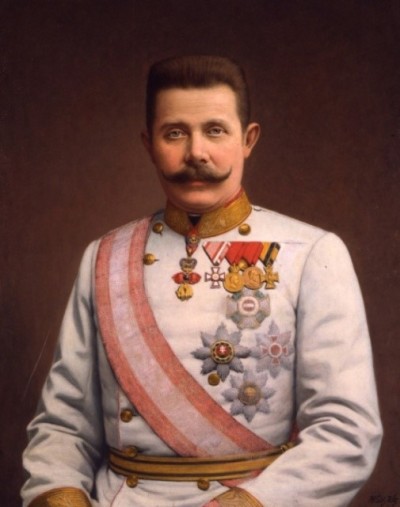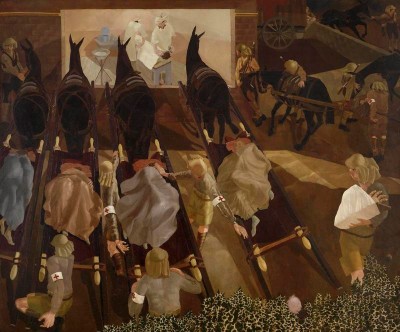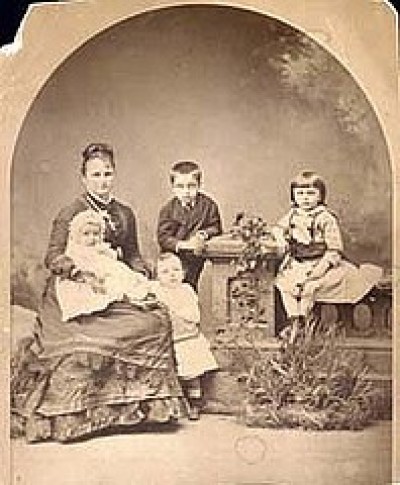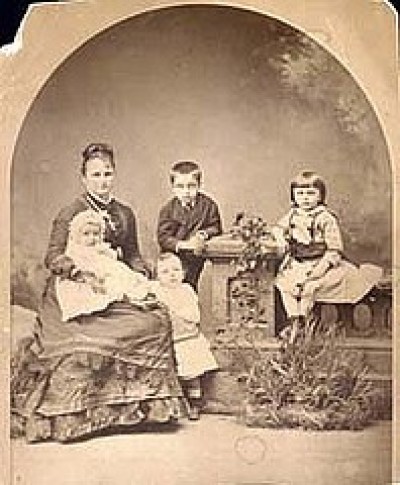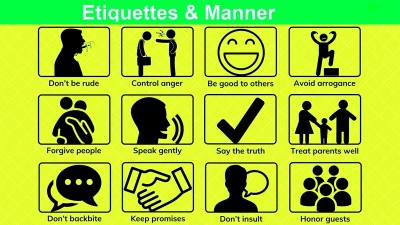Course description
Ambrose Bierce – The Occurrence at Owl Creek Bridge
Ambrose Bierce was the tenth of thirteen children born to poor but literary parents in Indiana, USA, in 1842. He left home at fifteen and never studied at high school or university but is now seen as a master of English writing. Many of his short stories are based on his experience in the American Civil War from 1861 to 1865. He joined the Union Army as a soldier but, because of his bravery, he left at the end of the war as a major.
Bierce is best remembered for his ‘Devil’s Dictionary’, which was a cynical and very funny book of political criticism. His journalism was also quite sharp and he made many enemies in the world of politics. He disappeared at the age of 71, when he was sent to Mexico in 1913 to report on the war there. He never returned.
The Occurrence at Owl Creek Bridge
A man stood on a railway bridge in northern Alabama, looking down into the swift water twenty feet below. The man's hands were behind his back, the wrists tied. A rope closely encircled his neck. It was attached to a strong plank of wood above his head. Some loose planks supplied a place for him and his executioners to stand – two soldiers of the Federal army, directed by a sergeant who in civilian life may have been a sheriff. At a short distance on the same temporary platform was an officer in a captain’s uniform, armed. Guards at each end of the bridge stood with their rifles upright in front of their left shoulders, a formal and unnatural position. It did not seem to be the duty of these two men to know what was happening at the center of the bridge; they merely blocked the two ends of it. In the distance past one of the guards nobody was in sight; the
railway ran straight away into a forest for a hundred metres, then, curving, was lost to view. The other bank of the stream was open ground, a gentle hill topped with a fort made of vertical tree trunks, with a single gap through which a cannon commanded the bridge. Midway up the slope between the bridge and fort were the spectators, a single group of soldiers in line, the butts of their rifles on the ground. A lieutenant stood at the right of the line, the point of his sword on the ground, his left hand resting on his right. Except for the group of four at the center of the bridge, not a man moved. The company faced the bridge, staring stonily, motionless. The guards, facing the banks of the stream, might have been statues. The captain stood with folded arms, silent, observing, but making no sign. Death, when he comes announced, is to be received with respect, even by those most familiar with him.
The man who was being hanged was, apparently, about thirty-five years of age. He was a civilian, to judge from his clothes, which were those of a gentleman. His features were good – a straight nose, firm mouth, broad forehead, from which his long, dark hair was combed straight back, falling behind his ears to the collar of his well-fitting coat. He had a moustache and pointed beard; his eyes were large and dark grey, and had a kind expression which one would not have expected in one whose neck had a rope
around it. Evidently, this was no common assassin. The military code has rules for hanging many kinds of people, and gentlemen are not excluded.
The preparations were complete, the two soldiers stepped aside and each pulled away the plank on which he had been standing. The sergeant turned to the captain, saluted and placed himself immediately behind that officer, who in turn moved one step away. These movements left the condemned man and the sergeant standing on the two ends of the same plank, which had been held in place by the weight of the captain; it was now held by that of the sergeant. At a signal from the captain, the sergeant would step aside, the plank would fall and the condemned man would fall from the bridge. The arrangement was simple and effective. Neither his eyes nor his face had been covered. He looked a moment at his "footing," then let his gaze wander to the water of the stream racing madly beneath his feet. A piece of dancing wood caught his attention and his eyes followed it down the river. How slowly it seemed to move!
He closed his eyes in order to fix his last thoughts on his wife and children. The water, touched with gold by the early sun, the mist at some distance down the stream, the fort, the soldiers, the piece of wood – all had distracted him. And at once he became conscious of a new disturbance. Now, preventing him thinking of his dear ones was a sound which he could neither ignore nor understand, a sharp, distinct, metallic noise like a blacksmith's hammer on the anvil; it had the same ringing quality. He wondered what it was, and whether far, far away or nearby – it seemed both. It came again and again, but as slow as the tolling of a bell announcing death. He awaited each sound with impatience, he did not know why. The intervals of silence grew longer, the delays became maddening. Although less frequent, the sounds increased in strength and sharpness. They hurt his ear like a knife; he worried he would scream. What he, in fact, heard was the ticking of his watch.
He opened his eyes and saw again the water below him. "If I could free my hands," he thought, "I might throw off the noose and jump into the stream. By diving I could escape the
bullets and, swimming hard, reach the bank, take to the woods and get away home. My home, thank God, is still outside their lines; my wife and little ones are still away from the invader's advance."
As these thoughts, which are here set down in words, flashed into the man's brain, the captain nodded to the sergeant. The sergeant stepped aside.
Peyton Farquhar was a well-to-do farmer of an old and highly respected Alabama family. Being a slave owner and, like other slave owners, a politician he was naturally a proponent of the South separating from the United States and was devoted to the Southern cause. Circumstances, which it is unnecessary to explain here, had prevented him from taking up active service with the brave army that had fought the disastrous campaigns ending with the fall of so many cities, and he was restless for the larger life of the soldier, the opportunity for distinction. That opportunity, he felt, would come, as it comes to all in wartime. Meanwhile he did what he could. No service was too small for him to assist the South, no adventure too risky for him to undertake. He agreed to at least a part of the saying that ‘all is fair in love and war’.
One evening while Farquhar and his wife were sitting on a bench near the entrance to his garden, a Southern soldier rode up to the gate and asked for a drink of water. Mrs. Farquhar was only too happy to serve him with her own hands. While she was fetching the water, her husband approached the dusty horseman and asked eagerly for news of the war.
"The Northerners are repairing the railways," said the man, "and are getting ready for another advance. They’ve reached the Owl Creek Bridge, repaired it and built a fort on the north bank. The commandant
has issued an order, posted everywhere, declaring that any civilian caught interfering with the railway, its bridges, tunnels or trains will be hanged. I saw the order."
"How far is it to the Owl Creek Bridge?" Farquhar asked.
"About thirty miles."
"Are there no Northern soldiers on this side of the river?"
"Only a guard half a mile out, on the railway, and a single guard at this end of the bridge."
"Suppose a man – a civilian – should get past the guard," said Farquhar, smiling, "what could he do?"
The soldier thought. "I was there a month ago," he replied. "I saw that the flood last winter lodged a great quantity of wood against the wooden support at this end of the bridge. It’s now dry and would burn like hell."
The lady now brought the water, which the soldier drank. He thanked her politely, bowed to her husband and rode away. An hour later, after nightfall, he passed the farm again, going northward in the direction from which he had come. He was a Federal spy.
III
As Peyton Farquhar fell straight downward through the bridge, he lost consciousness and was like one already dead. From this state he was awakened – ages later, it seemed to him – by the pain of a sharp pressure on his throat, followed by a sense of suffocation. Sharp pain seemed to shoot from his neck downward through every fiber of his body and limbs. These pains seemed like streams of fire heating him to an unbearable temperature. As to his head, he was conscious of nothing. He was not thinking. The intellectual part of his nature was already gone; he had power only to feel, and feeling was torture. He was conscious of movement. Surrounded by a cloud of light, of which he was now the fiery heart, he
swung. Then all at once, with terrible suddenness, the light about him shot upward with the noise of a loud splash; a frightful roaring was in his ears, and everything was cold and dark. He regained the power of thought; he knew that the rope had broken and he had fallen into the stream. The noose around his neck was already suffocating him and kept the water from his lungs. To die of hanging at the bottom of a river! The idea seemed ridiculous. He opened his eyes in the darkness and saw above him a gleam of light, but how distant! He was still sinking, for the light became fainter and fainter until it was only a glimmer. Then it began to grow and brighten, and he knew that he was rising toward the surface, knew it with sadness, for he was now very comfortable. "To be hanged and drowned," he thought? "That is not so bad; but I do not wish to be shot. No, I will not be shot; that is not fair."
He was not conscious of an effort, but a sharp pain in his wrist made him aware that he was trying to free his hands. He gave the struggle his attention, without much interest in the outcome. What magnificent, what superhuman strength! Ah, that was a fine effort! Bravo! The rope fell away; his arms parted and floated upwards, the hands dimly seen on each side in the growing light. He watched them with a new interest as first one and then the other pulled at the noose around his neck. They tore it away and pushed it aside, so that it moved away like a water snake. "Put it back, put it back!" He thought he shouted these words to his hands, for the undoing of the noose had been succeeded by the direst pang that he had yet experienced. His neck ached horribly; his brain was on fire; his heart, which had been beating faintly, gave a great leap, trying to force itself out at his mouth. His whole body was racked with pain! But his disobedient hands paid no attention to the command. They beat the water vigorously with quick, downward strokes, forcing him to the surface. He felt his head emerge; his eyes were blinded by the sunlight; his chest expanded convulsively, and with supreme agony his lungs breathed a great gulp of air, which he immediately exhaled with a scream!
He was now in full possession of his physical senses. They were, indeed, extremely alert. He felt the water on his face and heard the separate sounds of the waves as they hit. He looked at the forest on the bank of the stream, saw the individual trees, the leaves – saw even the insects on them. He noted the colors in all the drops of water on a million blades of grass. A fish slid along beneath his eyes and he heard the rush of its body parting the water.
He had come to the surface facing down the stream; in a moment the visible world seemed to wheel slowly round, himself at the center and he saw the bridge, the fort, the soldiers on the bridge, the captain, the sergeant, his executioners. They were in silhouette against the blue sky. They shouted and pointed at him. The captain had pulled out his pistol, but did not fire; the others were unarmed. Their movements were horrible, their shapes gigantic.
Suddenly he heard a sharp noise and something struck the water within a few inches of his head, spattering his face with spray. He heard a second noise, and saw one of the guards with his rifle at his shoulder, a light cloud of blue smoke rising from the gun. The man in the water saw the eye of the man on the bridge gazing into his own through the sights of the rifle. He saw it was a grey eye and remembered reading that grey eyes were the sharpest, and that all famous marksmen had them. Nevertheless, this one had missed.
Farquhar turned and was again looking into the forest on the bank opposite the fort. The sound of a clear, high voice in a monotonous singsong now rang out behind him and came across the water with a distinctness that silenced all other sounds, even the beating of the waves in his ears. Although he was no soldier, he had visited camps often enough to know the significance of that sound; the lieutenant on shore was taking part in the morning's work. How coldly and pitilessly – with what an even, calm voice he said those cruel words:
"Attention, company! . . Shoulder arms! . . . Ready! . . . Aim! . . . Fire!"
Farquhar dived – dived as deeply as he could. The water roared in his ears, yet he heard the dull thunder of the shots and, rising again toward the surface, met shining bits of metal, flattened, falling slowly downward. Some of them touched him on the face and hands, then fell away, continuing their descent. One lodged between his collar and neck; it was uncomfortably warm and he pulled it out.
As he rose to the surface, gasping for breath, he saw that he had been a long time under water; he was noticeably farther downstream nearer to safety. The soldiers had almost finished reloading; the metal guns flashed all at once in the sunshine, turned in the air. The two guards fired again, independently and wildly.
The hunted man saw all this over his shoulder; he was now swimming with the current. His brain was as energetic as his arms and legs; he thought with the speed of lightning.
“The officer," he reasoned, "will not make that mistake a second time. It is as easy to dodge a volley as a single shot. He has probably already given the command to fire at will. God help me, I cannot dodge them all!"
An appalling splash within two yards of him was followed by a loud, rushing sound, which seemed to travel back through the air to the fort and died in an explosion which stirred the very river to its depths!
A rising sheet of water curved over him, fell down on him, blinded him, strangled him! The cannon had been fired.
"They will not do that again," he thought; "the next time they will use grape shot. I must keep my eye on the gun; the smoke will warn me – the sound arrives too late; it comes behind the missile. That’s a good gun."
Suddenly he felt himself whirled round and round. The water, the banks, the forests, the now distant bridge, fort and men – all were blurred. Objects were represented only by their colors; circular horizontal streaks of colour – that was all he saw. He had been caught in a vortex and was being whirled on with a speed that made him feel sick. In a few moments he was thrown on the left bank of the stream – the southern bank – concealed from his enemies. The suddenness of stopping, the cuts on one of his hands from stones on the bank, revived him, and he cried with happiness. He dug his fingers into the sand, threw it over himself in handfuls. It looked like diamonds, rubies, emeralds; he could think of nothing more beautiful. The trees on the bank were giant garden plants; he inhaled the perfume of their flowers. A strange, rosy light shone through the spaces between the trunks and the wind made music in their branches. He had no wish to escape – he was content to remain in that enchanting spot until he was re-captured.
The noise of shots among the branches high above his head roused him from his dream. The cannoneer had fired him a random farewell. He sprang to his feet, rushed up the sloping bank, and plunged into the forest.
All that day he travelled. The forest seemed endless; he could discover no end to it, not even a path. He had not known that he lived in so wild a region.
By nightfall he was exhausted, starving. The thought of his wife and children urged him on. At last he found a road which led him in what he knew to be the right direction. It was as wide and straight as a city street, yet it seemed empty. There were no fields on either side of it, no houses anywhere. Not so much as the barking of a dog suggested human life nearby. The black bodies of the trees formed a straight wall on both sides, ending on the horizon in a point, like a diagram in a geometry lesson. Overhead, as he looked up through this gap in the wood, shone great stars looking unfamiliar and grouped in strange constellations. He was sure they were arranged in some order which had a secret and evil significance. The wood on either side was full of strange noises, among which – once, twice, and again – he distinctly heard whispers in an unknown language.
His neck was in pain and, lifting his hand to it, he found it horribly swollen. He knew there was a circle of black where the rope had bruised it. His eyes felt sore; he could no longer close them. His tongue was swollen with thirst. He could no longer feel the road beneath his feet!
Doubtless, despite his suffering, he had fallen asleep while walking, for now he sees another scene – perhaps he has merely recovered from delirium. He stands at the gate of his own home. All is as he left it, and all bright and beautiful in the morning sunshine. He must have traveled the entire night. As he pushes open the gate and passes up the wide white path, he sees his wife, looking fresh and cool and sweet, stepping down from the veranda to meet him. At the bottom of the steps she stands waiting, with a smile of joy, an attitude of grace. Ah, how beautiful she is! He jumps forward with his arms stretched towards her. As he is about to hold her, he feels a blow on the back of the neck; a blinding white light blazes all about him with a sound like the shock of a cannon – then all is darkness and silence!
Peyton Farquhar was dead; his body, with a broken neck, swung gently from side to side beneath Owl Creek Bridge.

